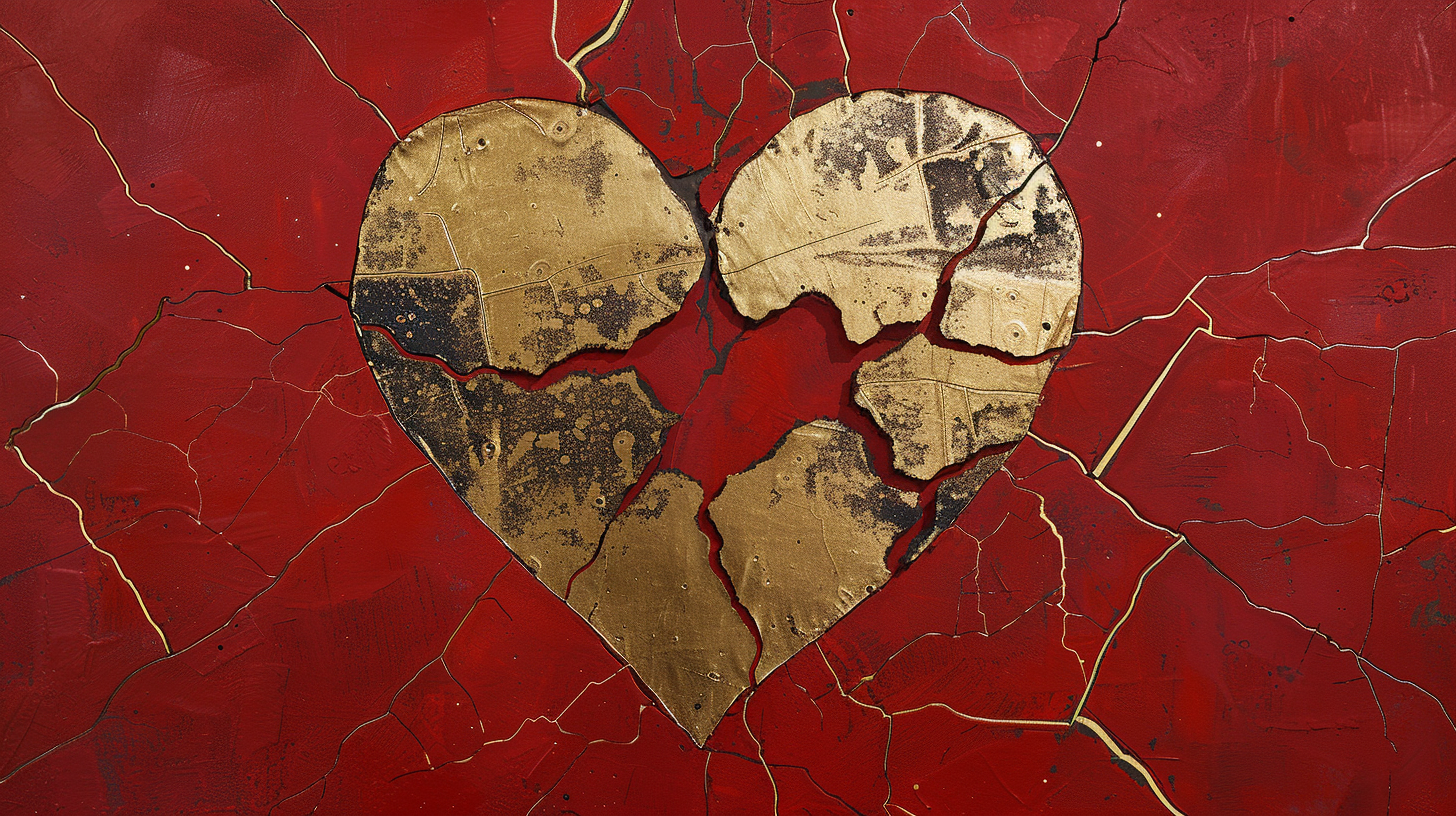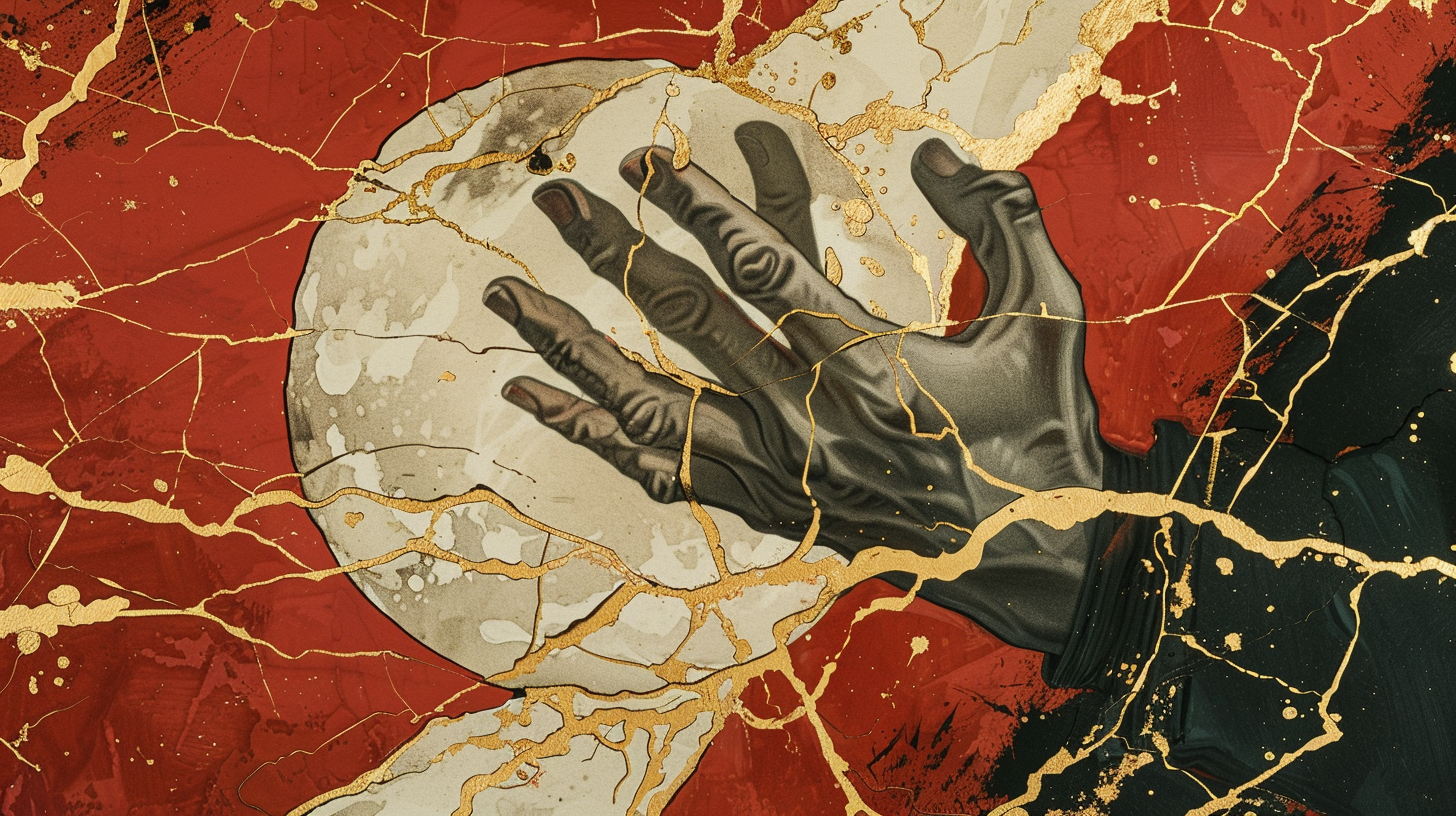- Esther's Letters
- Posts
- Does It Hurt?
Does It Hurt?
Navigating Victimhood and Finding Empowerment

Does it hurt?
That depends…
What do you mean by pain?
What is your attitude toward change?
I found that when I was in an unhealthy state of mind, I would seek deficiency in others. I would get frustrated when I shared my pain with others, and they didn’t have the capacity to “feel my pain.”
This would create a deeper sense of isolation, and in turn, I felt like no one understood what I was going through.
But in truth, I was stuck.
I wasn’t able to see that I was the only one who could get myself to reframe what I was seeing. I was the only one who could collect the fragmented pieces of myself and put them back together.
Kintsugi, an ancient Japanese practice, involves repairing broken ceramics with gold, transforming them into something stronger and more exquisite. We apply this philosophy to fortify mental wellness frameworks, enabling individuals to embrace their imperfections and discover beauty in their journey of growth instead of succumbing to adversity.
It feels good to feel sorry for myself.
Slavoj Žižek says we fall in love with our suffering.
Some of us feel that our suffering gives us a sense of authenticity.

The feeling of victimhood itself doesn’t make you right.
It’s a position and a relationship you have with your emotions.
Victimhood is like a search; We keep seeking pain.
Victim mentality is a psychological phenomenon characterized by perceiving oneself, or a group, as a victim of external circumstances or the actions of others. When one adopts a victim mindset, they tend to attribute negative outcomes to external factors rather than taking responsibility for their own actions.
Victimhood is living in pain.
The pain of staying the same is great, but at some point, change has to happen.
There is a deep sense of isolation; it cuts all ties of communication with the people who really love us and the world around us.
We find a vice that will hold us up, hold us back from the expression of who we are: connectors and communicators.
Humans can’t live without love or connection.
Humans can’t live without the fuzzy feeling of warmth, sunlight, and admiration.
To put this into practice, I create some non-negotiables in my daily routine. For change to happen, I don’t give myself certain choices. I keep the freedom of choice to specific things. Because just like victimhood and a healthy relationship, creating awareness and redirection are essential.
Facts about victimhood in relationships: it eats away at our self-worth, rots the brain, creates a dark cloud, and also isolates us from our environment.
The power of having a community, being part of a family, even if it’s complicated.
Ask yourself, “What is my part and contribution to my environment?”

Points of preparation:
List of changes -
Many of us are in our heads — selfish rather than community-oriented.
Victim mentality assumptions and belief system — we assume others don’t experience challenges.
I want shortcuts (don’t take offered shortcuts) — there are no shortcuts.
Other people have it easier — the next time you are talking to someone, create a space where you can really listen. Don’t interrupt them or counter with the weight of your pain, and you will discover that the other person might also be experiencing challenges and deals with them differently than you.
Understand that life is hard. Choose your hard.
I’m not going to be inflammatory — disrupt energy. Ask yourself, “Am I a liability or support?” It’s less important to be right and more important to pay attention to the energy pulse in the room — it’s more about reading the room.
Be proactive.
Existing in a provocative state where either you’re disrupting or creating disruption in someone else. Healthy living is creating support where you don’t interrupt somebody else’s thought process but give them the ability to make better choices for themselves, not make choices for them.
This requires stepping into your higher self and more confident self.
To access this part of yourself, take a moment to ask yourself when you feel you perform at your best.
In your job, at home, in relationships?
Draw on that energy and see if you can direct it to pull the victim fragment of yourself out of the rut.
Also…
The food we eat can create a support system for our nervous system.
The company we keep can affect our mood.
Natural light first thing in the morning can help monitor and regulate our circadian rhythm, which can affect the way we see ourselves. Hence, victim mode.
Lifting weights can help build a core that can be utilized in all areas of life: physically, spiritually, and emotionally.
Gratitude — what are you thankful for?
Be a giver rather than a taker — where else can you be open to contributing (not ramming it down anyone’s throat and not getting ahead)?
Who are you when you don’t get what you want?
Take inventory
What happens in your body?
Where do you get reactive?
There is nothing wrong with you.
What have you piled on that doesn’t belong there?
Until next time.
Esther
For Daily content journaling prompts and live practices to help nurture self-growth: With Esther: WhatsApp Group: https://chat.whatsapp.com/EuQdgVxLanc6an5tNmS8gO